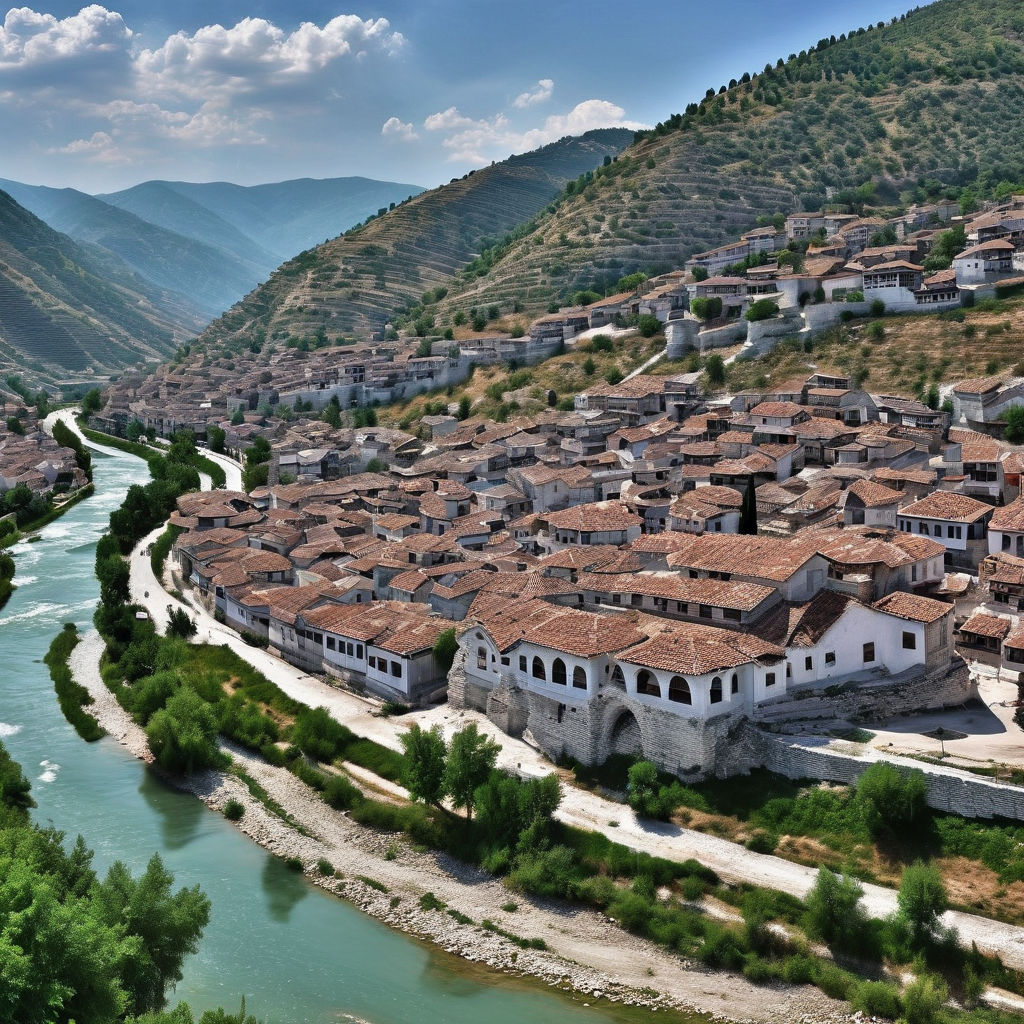Introduction to Albania: A Cultural Mosaic
Exploring Albania's Rich Heritage and Modern Connections

Introduction to Albania
Albania, a small yet diverse country in Southeast Europe, is situated on the Balkan Peninsula. It is bordered by Montenegro to the northwest, Kosovo to the northeast, North Macedonia to the east, and Greece to the south. The Adriatic Sea lies to the west and the Ionian Sea to the southwest, providing Albania with a stunning coastline. The capital city, Tirana, is the largest city and serves as the political, economic, and cultural center of the country. Other significant cities include Durrës, an important port city, and Shkodër, known for its historical sites. Albania's rich cultural heritage is a blend of Illyrian, Greek, Roman, Byzantine, and Ottoman influences, which are reflected in its architecture, traditions, and customs.
Cross-national and Cross-cultural Understanding
Albanians generally perceive and engage with other cultures with a sense of openness and curiosity. The country has a history of cultural exchanges, educational programs, and international partnerships that promote cross-cultural understanding. These initiatives reflect Albania's desire to connect with the global community and foster mutual respect and appreciation. Cultural exchanges are an integral part of Albanian society. Events such as the Tirana International Film Festival and the Gjirokastër National Folklore Festival attract international visitors and provide a platform for showcasing Albanian culture while embracing influences from around the world. These festivals foster a spirit of global cultural exchange and enhance mutual cultural appreciation. Educational programs in Albania also emphasize cross-cultural understanding. Institutions like the University of Tirana and the Epoka University have established partnerships with foreign universities, facilitating student and faculty exchanges. These programs allow Albanian students to study abroad and bring back diverse perspectives that enrich the local educational environment. Additionally, international students and faculty members in Albanian institutions contribute to a multicultural academic community.
Interactions and Social Dynamics
Interactions between Albanians and foreigners are typically characterized by warmth, respect, and a genuine interest in learning about different cultures. Social behaviors in Albania reflect a blend of traditional customs and contemporary influences, with an emphasis on family values and communal living. Communication styles in Albania are generally informal and friendly. Albanian is the official language, and while English is increasingly being taught in schools and used in business settings, Italian and Greek are also commonly spoken, especially among older generations and those living in border areas. This multilingualism facilitates interactions with tourists and expatriates, making it easier for them to integrate into Albanian society. Cultural norms in Albania emphasize respect for elders, strong family ties, and hospitality. These values create a welcoming and inclusive atmosphere for foreigners, who often find it easy to adapt to the local way of life. Public displays of affection are generally modest, reflecting traditional values, but social gatherings and communal activities are lively and inclusive.
Views on Dating and Relationships
Albanians generally have open and accepting attitudes towards dating and relationships with foreigners, though these views are influenced by cultural and traditional norms. There is a recognition of the opportunities for cultural exchange and personal growth that such relationships can bring. However, traditional customs and values play a significant role in shaping these views. Family involvement is significant in relationships in Albania, with elders often playing a crucial role in the approval process. Traditional customs emphasize respect, patience, and the gradual building of trust in relationships. While modern dating practices influenced by global trends are becoming more common among younger generations, traditional values still hold sway in many communities.
Marriage and Family
Marrying a foreigner in Albania involves navigating both legal and social considerations. Legally, the country has clear regulations governing marriage, including residency requirements and the need for proper documentation. Socially, cross-cultural marriages are generally accepted, though couples may face challenges related to cultural differences and integration. Familial acceptance is a key factor in cross-cultural marriages. Albanian families can be protective, and gaining their approval is often essential for the relationship's success. However, the diverse cultural landscape of Albania means that many families are already familiar with and accepting of different cultural backgrounds, which can facilitate smoother integration for foreign spouses. Trends in cross-cultural marriages reflect Albania’s open and inclusive society. Many Albanians who travel abroad for education or work form relationships with individuals from various cultures, bringing back diverse customs and traditions that enrich the local community.